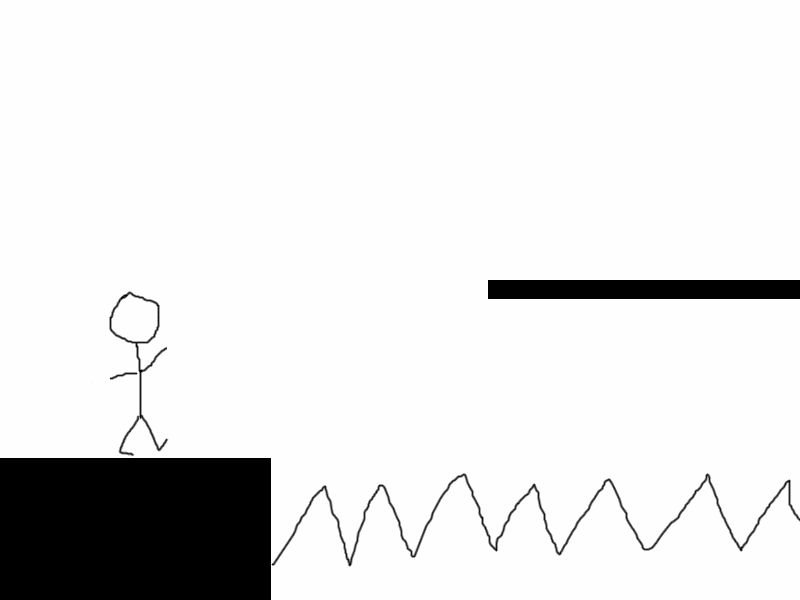I like Space Pioneer, but it does one thing that bugs me a lot. To properly explain it, I first need to talk about a PS2 JRPG from 2003 because that’s how I roll.
The first game in the .hack multimedia franchise is called .hack//Infection. It’s a sci-fi JRPG taking place in an alternate near-future - but it focuses on a fictional fantasy MMORPG in the vein of Phantasy Star Online that your character spends most of their time playing. So in practice, the actual gameplay is a JRPG pretending to be a MMORPG.
In 2003, I was way into JRPGs and curious about MMOs, but was quickly repelled by .hack//Infection’s approach. The way I remember it, in the game’s first hour or two you find yourself in a blocky, procedural-looking dungeon teaming up with another “player” to kill some monsters. You add each other as friends and later you sign on for another session and your friend isn’t online so you have to solo for a while.
Now, this was some sixteen years ago so I might have some details wrong and I was definitely dumber about game design back then, but this setup struck me as obviously wrong-headed. The (probably unfair) vibe I got was that the game was made to cash in on the rising popularity of MMORPGs by imitating one in a cheaper-to-make single-player RPG, without recognizing that the things that are easy to copy about MMORPGs aren’t the good things about them - they’re the unfortunate consequences and limitations required by the good things which you can’t copy without actually being a MMORPG.
MMORPGs are appealing because you can work together with real people to progress. That’s the good part. You can’t copy that in a standard JRPG. A consequence of your allies being real people is that they aren’t always playing at the same time you are (or in a position to play the same content). And blocky, procedural dungeons are a consequence of the need to provide gobs of content for players to chew through together over time and keep their subscriptions up. In a single-player single-purchase game with a story and ending, incorporating these negative consequences is just making the game worse without providing the positives that outweigh those problems in an MMO.
To be fair, I don’t actually know whether .hack//Infection does something worthwhile that justifies these choices; I dropped the game pretty quickly. But in those first couple of hours, it felt like the game was trying to make me feel like I was playing a MMORPG through superficial imitation that could only ever copy the downsides and I couldn’t understand why anyone would make a game like that.
Okay, so, that brings us to Space Pioneer.
Space Pioneer’s progression is all about upgrades. Virtually everything about your character and their arsenal can be upgraded. You pay for these upgrades using coins earned by defeating enemies and completing objectives, but to be allowed to purchase an upgrade, you need to have enough cards for that upgrade. And upgrade cards are rewarded in what can only be called loot boxes.
There’s no way to buy them with real-world money. (Definitely not in the microtransaction-free Switch version of the game, but from what I can see they don’t look purchasable in the freemium mobile version either.) But completing certain in-game objectives awards you with random bunches of upgrade cards that differ by rarity and are presented with a box-opening animation. It seems very clearly intended to be evocative of loot boxes - and why would you do that?
Nobody actually likes loot boxes. They are a consequence of a particular type of monetization, and while often profitable their consequences for a game’s experience are usually negative. The reason to include them is to make money, not because people actually like them - so why add them if you aren’t going to use them to get money?
And indeed, I’d absolutely argue their impact in Space Pioneer is negative. The first few I received were a little exciting, but when I realized that I wasn’t actually earning upgrades but rather the opportunity to buy upgrades and that I was much more constrained by coins than cards and always had plenty of available upgrades I couldn’t afford, I stopped paying any attention to what cards I received and it no longer felt like a reward. In fact, the only real impact it ever had was when I got unlucky and stopped getting cards for the frag grenade and then got a mission objective to use a higher level of frag grenade than I had access to. I couldn’t complete this objective until I finally randomly got more frag grenade upgrade cards.
In other words, rather than being a reward system, the upgrade cards were only a wall to progression that randomly blocked off upgrades and objectives - in a game where the progression is all about upgrades and objectives and where you can’t even spend money to get past the wall.
I don’t know what the designers of .hack//Infection or Space Pioneer had in mind, but to me these both seem like cargo cult design, incorporating popular elements without an understanding of why they’re popular or what impact they will have when superficially imitated. Only the costs are incurred with none of the benefits. They’re just the game getting in its own way.
